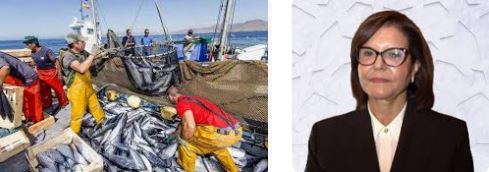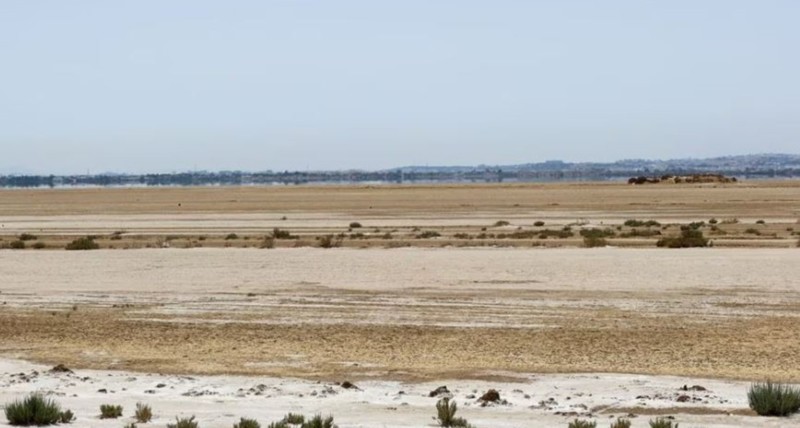
Secretary of State for Maritime Fisheries, Zakia Driouich, Highlights the BBNJ Agreement as a Major Step for Sustainable Marine Resource Management
Zakia Driouich, Secretary of State for the Minister of Agriculture, Maritime Fisheries, Rural Development, and Water and Forests, responsible for Maritime Fisheries, affirmed that the BBNJ Agreement on the conservation and sustainable use of marine biodiversity in areas beyond national jurisdiction is a major step forward for the preservation and sustainable management of marine resources in these spaces.
Speaking at the opening of a regional workshop on the BBNJ Agreement, Ms. Driouich emphasized Morocco’s active role in consolidating a shared African vision on the key issues of this agreement, particularly the creation of marine protected areas, equitable sharing of marine genetic resources, and the establishment of environmental impact assessment mechanisms.
She also highlighted the Kingdom’s commitment, under the enlightened leadership of His Majesty King Mohammed VI, to promoting an inclusive and sustainable blue economy and strengthening regional cooperation.
In this context, Ms. Driouich emphasized the Royal Initiative to provide landlocked African states with strategic access to the Atlantic Ocean. “This vision, based on active solidarity and inclusive development, reflects the common ambition to overcome geographical constraints and strengthen regional cooperation, allowing these countries to fully benefit from the opportunities offered by the ocean economy,” she stressed.
The Secretary of State also recalled Morocco’s efforts during the BBNJ negotiations to facilitate the consolidation of a shared African vision on the main components of the text discussed, such as the creation of marine protected areas, impact studies on human activities in the marine environment, as well as access to genetic resources and the equitable sharing of their benefits.
On his part, Daniele Dotto, Deputy Head of Delegation of the European Union (EU), highlighted the significant contribution of African states to the drafting of the BBNJ Agreement and congratulated the Seychelles for being the first African nation to ratify it.
He also announced that the EU is committed to supporting the sustainable use of biodiversity in the high seas through an « Ocean » program with a budget of 40 million euros over six years.
“We are currently working on the first phase of this program, focusing particularly on providing technical assistance to support national and regional efforts in developing countries in the conservation and sustainable use of the high seas, particularly regarding the ratification and implementation of the BBNJ Agreement,” he said.
This support will complement numerous national and regional programs that have recently been adopted in the areas of ocean governance, blue economy, and the conservation of marine and coastal ecosystems, Mr. Dotto explained.
For her part, Nathalie Fustier, UN Resident Coordinator in Morocco, stated that the BBNJ Agreement is an additional tool to support collective efforts to achieve the Sustainable Development Goals by 2030.
“After two decades of development, the adoption of this agreement illustrates the centrality of multilateralism and international cooperation,” she added, noting that the agreement’s entry into force and its effective implementation require collective mobilization, where states, UN organizations, and all stakeholders combine their efforts and act in concert.
“We are fortunate to have representatives from nearly 30 African countries and other stakeholders with us today,” she expressed, noting that this diverse participation reflects the intersectoral nature of the agreement, whose effective implementation will depend on the support and cooperation of a wide range of actors.
In turn, Charlotte Salpin, representative of the UN Office for Legal Affairs, praised Morocco’s efforts, which played a key role as coordinator of the African group for marine capacity building and technology transfer.
“Thanks to the active and skilled participation of African states, the agreement addresses several critical issues for Africa,” she stated, recalling that two of the fifteen ratifications received to date come from African states, and 22 African states have signed the agreement.
Ms. Salpin also highlighted the relevance of this workshop, which can provide regional stakeholders with the necessary information to effectively engage in the implementation of the agreement’s provisions.
Held in the presence of UN representatives, the EU, and several government officials, the workshop was organized by the UN Division for Ocean Affairs and the Law of the Sea, with support from the EU.
Hosted by Morocco, it brought together over 120 participants from African countries bordering the Atlantic Ocean and the Mediterranean Sea, as well as from certain landlocked African countries.
This initiative is part of international efforts to strengthen sustainable ocean governance, with the participation of representatives from international and regional organizations, as well as marine biodiversity experts.
The workshop aims to enhance understanding of the provisions of the BBNJ Agreement, signed by Morocco in September 2023, identify the institutional and legal needs required for effective implementation, and support states in their preparation for accession and ratification of this legal instrument.



